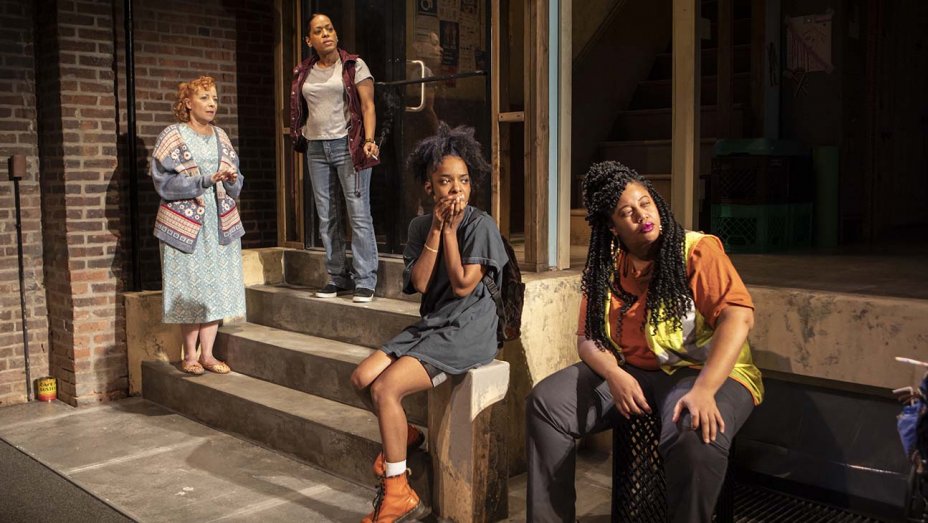Peter Warlock’s “Bethlehem Down,” performed by Stephen Cleobury and the Choir of King’s College, Cambridge, in 2016:
(This is the latest in a series of arts- and history-related videos that appear in this space each Monday, Wednesday, and Friday)
Terry Teachout on the arts in New York City
Peter Warlock’s “Bethlehem Down,” performed by Stephen Cleobury and the Choir of King’s College, Cambridge, in 2016:
(This is the latest in a series of arts- and history-related videos that appear in this space each Monday, Wednesday, and Friday)
“It is only by risking our persons from one hour to another that we live at all. And often enough our faith beforehand in an uncertified result is the only thing that makes the result come true.”
William James, “Is Life Worth Living?”


I’ve felt this way before. My old friend Nancy LaMott died two weeks before Christmas in 1995, and I was so devastated by the appalling fact of her loss that it temporarily destroyed my ability to revel in the holiday season. A number of years went by before I found it possible to truly enjoy Christmas. Much the same thing seems to have happened to me again: I’ve been so preoccupied with Mrs. T’s continuing plight that I simply couldn’t summon up the Christmas spirit.

Fear not, though, for this grim catalogue of current events is but a prelude to what I think it’s fair to call the best of all possible Christmas presents: Mrs. T has just been taken off the ECMO machine that saved her life last week. The doctors decided that she’d improved enough to do without it, and she underwent an extremely risky surgical procedure on Monday afternoon in order to unhook the machine, whose prolonged use is fraught with potentially lethal side effects, from her circulatory system.
Not surprisingly, I’d been wondering—with good reason—whether Mrs. T would live to see another Christmas. But yesterday’s procedure, much to my relief, went smoothly and uneventfully, and I am overjoyed to report that her blood pressure and oxygen saturation level are now gloriously stable and she is resting far more comfortably. (By way of contrast, she was in so much pain a few short days ago that at one point she was yelling with agony.)
To be sure, we don’t expect her to be coming home any time soon. It’s far more likely that she’ll have to stay in the hospital until after she’s been transplanted and has recovered from the surgery. But what of it? For now, the headline is: Mrs. T is alive!
And what kind of Christmas are we going to have in 2019? The very finest kind, of course—because we’ll be spending it together.

I can’t know what the future holds in store for my gallant Mrs. T as we wait impatiently for the Big Call that will upend our shared lives and, if all goes well, allow us in time to return to Sanibel Island at long last. The wait may be brief…or not. It’s out of our hands, and like the song says, Until then we’ll have to muddle through somehow. What I do know, though, is that neither one of us has to muddle alone anymore, even when we can’t do much more than sit quietly in an upper Manhattan ICU, holding hands and listening to soft music or watching pre-Code movies on her trusty iPad.
My friend Whit Stillman said it: “Happiness in life is often constructed from tiny wonderful things—hot toast with butter—not big things.” But wonderful as it is, there is nothing tiny about our loving companionship. It is the pearl of great price that for us has become the true meaning of Christmas. We may not have presents or a fancy tree, but that doesn’t matter in the slightest: we have the gift of one another, and so we are happy beyond all possible measure.
May you, too, know such happiness, today, tomorrow, and always.
* * *
Desmond Earley and the University College Dublin Choral Scholars perform Benjamin Britten’s “Deo Gracias,” from A Ceremony of Carols, in Newman University Church, St. Stephen’s Green, Dublin, in 2011. The harpist is Denise Kelly:
From Meet Me in St. Louis, directed by Vincente Minnelli, Judy Garland sings “Have Yourself a Merry Little Christmas,” by Hugh Martin and Ralph Blane. The orchestration is by Conrad Salinger:
Louis Armstrong recites Clement Moore’s “The Night Before Christmas.” This was Armstrong’s last commercial recording. He made it at his home in Queens on February 26, 1971, five months before his death:
To learn more about the history of this recording, go here.
“Others, one suspects, are afraid that the crossing of space, and above all contact with intelligent but nonhuman races, may destroy the foundations of their religious faith. They may be right, but in any event their attitude is one which does not bear logical examination—for a faith which cannot survive collision with the truth is not worth many regrets.”
Arthur C. Clarke, The Exploration of Space
Lennox Berkeley’s “I sing of a maiden,” performed by Stephen Cleobury and the Choir of King’s College, Cambridge, in 2016:
(This is the latest in a series of arts- and history-related videos that appear in this space each Monday, Wednesday, and Friday)
“Love is an act of faith, and whoever is of little faith is also of little love.”
Erich Fromm, The Art of Loving
* * *
Stephen Adly Guirgis is on a prolonged roll. “The Motherf**ker With the Hat” and “Between Riverside and Crazy,” his most recent plays, were serious comedies of urban life whose well-constructed plots kept them roaring down the dramatic track and whose smart, crackling dialogue had all the idiomatic savor of August Wilson at his best. Who knew that the sophomoric author of such earlier plays as “The Last Days of Judas Iscariot” would become a purveyor of taut moral tales that are also richly funny?…

Now the Atlantic Theater Company and LAByrinth Theater Company, Mr. Guirgis’ home base, have collaborated on a new play in a similar vein with an equally dumb title, “Halfway Bitches Go Straight to Heaven.” (I really wish he’d seek outside counsel when naming his shows.) The results, once again, are purest delight, all the more so because Mr. Guirgis has turned over a fresh leaf in his writer’s notebook. Unlike its more tightly wrought predecessors, “Halfway Bitches” is a big-cast ensemble piece set in a halfway house for troubled women whose near-plotlessness reminded me of nothing so much as one of Chekhov’s group portraits of turn-of-the-century Czarist Russia on the verge of revolution. It is, truth to tell, a bit too long—nearly three hours—but I wouldn’t want to have to cut it, for “Halfway Bitches,” for all its “Heartbreak House”-like looseness of structure, is so excitingly eventful that your attention will never wander.
Most of Mr. Guirgis’ 20 characters, played by 18 just-right actors, are the staff and occupants of Hope House, described in the script as “a government-funded residence for women providing transitional shelter and support for women in need in New York City.” Some drink, some use drugs, while others seek to break themselves of the no less devastating “habit” of being battered by their faithless partners….
I don’t want to single out any of the actors in “Halfway Bitches” for particular praise, since they’re all giving performances so real that you’ll feel as though you’d recognize their characters if you ran into them on Ninth Avenue after the show….
* * *
Read the whole thing here.| M | T | W | T | F | S | S |
|---|---|---|---|---|---|---|
| 1 | 2 | 3 | 4 | 5 | ||
| 6 | 7 | 8 | 9 | 10 | 11 | 12 |
| 13 | 14 | 15 | 16 | 17 | 18 | 19 |
| 20 | 21 | 22 | 23 | 24 | 25 | 26 |
| 27 | 28 | 29 | 30 | 31 | ||
An ArtsJournal Blog